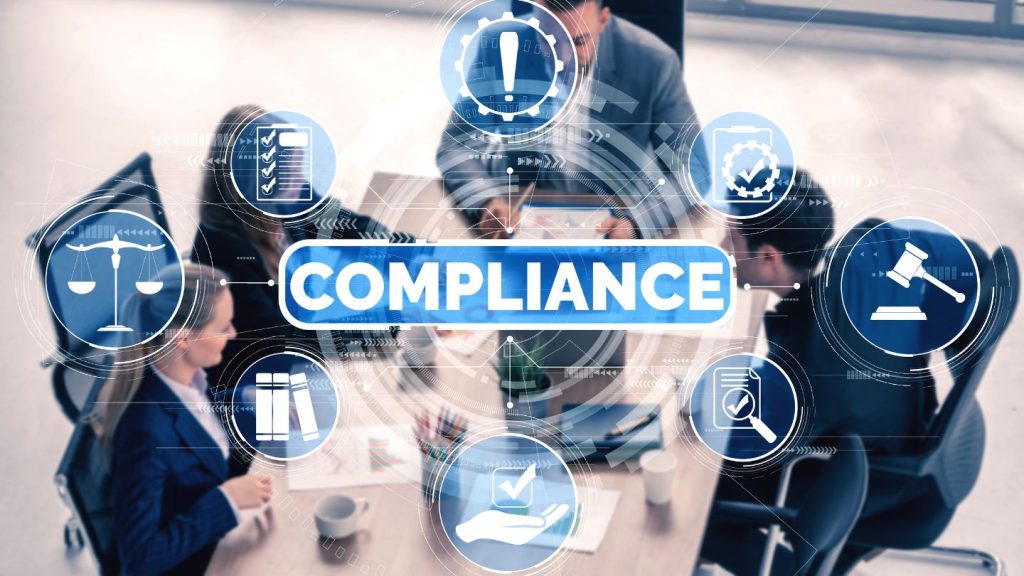The Importance of Compliance in Healthcare Contact Centers: What You Need to Know

Healthcare contact centers play a crucial role in connecting patients with the care and support they need. Every call, message, or digital interaction can involve sensitive personal information, which makes protecting that data a top priority. When these centers follow the right standards and safeguards, they not only prevent security risks but also strengthen patient confidence and trust.
Staying compliant is about more than meeting legal requirements; it’s about creating a safe, respectful, and reliable environment for every patient interaction. This blog explores why maintaining strong data protection practices is essential, the main regulations that guide the industry, and practical ways healthcare organizations can ensure secure and effective communication.
Key Takeaways
- Compliance is essential for healthcare contact centers, ensuring the protection of electronic protected health information (ePHI) and fostering consumer trust.
- Adherence to key regulations such as HIPAA, TCPA, and PCI DSS is critical to avoid severe penalties and safeguard patient data.
- Regular training, audits, and integration of technology are vital for maintaining compliance, enhancing operational efficiency, and ensuring secure data handling.
The Role of Compliance in Healthcare Contact Centers
Compliance is the bedrock on which healthcare call centers operate. Handling electronic protected health information (ePHI) requires a robust compliance framework to avoid the substantial legal liabilities linked to data breaches. For healthcare organizations, compliance means more than adhering to regulations; it’s about protecting patient data and ensuring every interaction is secure and trust-building. The importance of healthcare call center compliance cannot be overstated, over 80% of consumers say that data protection influences their purchasing decisions.
Maintaining compliance in call centers is a team effort. It involves everyone from call center agents to line managers and C-suite leaders. Each plays a crucial role in ensuring adherence to compliance standards. Line managers, for example, monitor calls to ensure policy adherence, while top management sets the tone by prioritizing resources and developing policies to ensure compliance. Continuous education is essential for maintaining trust over time. Additionally, a focus on responsibility plays a crucial role in this process.
Failure to protect sensitive patient information can have dire consequences. It can erode customer trust and investor confidence, leading to significant financial penalties and compromising patient privacy.
On the flip side, maintaining compliance not only helps build security and protect against fines and lawsuits but also significantly influences consumer trust and patient satisfaction. In essence, compliance is not just about avoiding compliance risks; it’s about fostering a secure and trustworthy patient experience.
Understanding the difference between healthcare call centers and traditional call centers is also vital, as healthcare operations require strict confidentiality, trained professionals, and adherence to medical privacy laws that general contact centers do not face.
Key Regulations Impacting Healthcare Contact Centers
Healthcare contact centers must navigate a labyrinth of regulations to ensure compliance. The Health Insurance Portability and Accountability Act (HIPAA) is paramount among these regulations, safeguarding health information and governing the handling of protected health information (PHI) within healthcare contact centers. HIPAA compliance is non-negotiable; health organizations will not partner with HIPAA-compliant call centers that cannot demonstrate their compliance in communication practices.
Beyond HIPAA, healthcare contact centers must also adhere to the Telephone Consumer Protection Act (TCPA), which establishes rules to limit the use of autodialers and requires prior consent for automated calls. Violations of the TCPA can result in fines ranging from $500 to $1,500 per unauthorized call or text. Compliance with the Payment Card Industry Data Security Standard (PCI DSS) is also crucial for call centers involved in payment processing, outlining security measures to protect cardholder data.
Non-compliance with these healthcare regulations can lead to severe penalties, including fines up to $1.5 million per year for healthcare data breaches under HIPAA. Additional compliance requirements come from:
- The Health Information Technology for Economic and Clinical Health (HITECH) Act
- The Affordable Care Act (ACA)
- Various state-specific laws that add to these obligations.
Ensuring compliance with this tapestry of federal regulations is essential for operating a compliant call center that protects sensitive customer information and maintains regulatory compliance.
To understand how these frameworks function in practice, examining how HIPAA compliance works in health call centers provides valuable insights into the daily processes and safeguards necessary for protecting patient data effectively.
Ensuring HIPAA Compliance
Ensuring HIPAA compliance involves adhering to multiple standards, including the Security and Breach Notification Rules, as well as aspects of the Privacy Rule concerning PHI usage. The HIPAA Security Rule outlines standards for safeguarding ePHI during transmission, emphasizing the need for secure communication methods. Implementing secure texting solutions allows call centers to communicate PHI safely, aligning with HIPAA requirements while enhancing operational efficiency.
Monitoring access to electronic PHI is crucial for maintaining HIPAA compliance, ensuring that only authorized personnel can access sensitive information. Training employees on the Privacy Rule helps prevent inadvertent disclosures of PHI, making it a vital component of compliance.
Additionally, emergency response plans are essential to ensure the integrity and availability of electronic PHI during disasters. Incorporating these measures not only helps protect patient data but also ensures that healthcare call centers can maintain HIPAA compliance and mitigate compliance risks. Regular audits and compliance monitoring further support these efforts, fostering a culture of security and trust within the organization.
To improve operational safeguards, organizations can apply the tips for ensuring a HIPAA-compliant call center, which emphasize agent training, secure systems, and consistent audit practices to reduce risks and strengthen data protection.
Data Security Measures

Data security is a cornerstone of maintaining compliance in healthcare contact centers. Implementing technical safeguards such as encryption standards like TLS 1.3 and AES-256 is vital to protect sensitive patient information and ensure secure data storage. Physical safeguards are equally important; locked file cabinets and access restrictions prevent unauthorized access to facilities managing patient information.
Rigorous monitoring to detect and respond to potential breaches of electronic protected health information (ePHI) is essential for maintaining compliance and operational integrity. A well-trained workforce is crucial to data security, ensuring that staff adhere to compliance protocols and effectively safeguard sensitive patient information.
Together, these measures create a robust security framework that protects patient data, ensures compliance with data privacy laws, and mitigates the risk of data breaches. Regular updates and assessments of these security measures help adapt to technological advancements and emerging threats, maintaining the highest standards of data protection and adhering to the General Data Protection Regulation.
Learning from healthcare call center best practices can also help organizations identify areas to enhance security, improve efficiency, and deliver better patient experiences while remaining compliant with industry standards.
Training and Workforce Management
Regular training for call center agents on secure data handling is crucial for preventing data breaches. Comprehensive training programs should include modules on emergency protocols, documentation best practices, and continuous education to help healthcare staff meet licensing needs and maintain compliance. Engaging training techniques like quizzes, role-playing, and real-time agent guidance ensure that agents remain up-to-date on HIPAA regulations and compliance requirements.
Role-based access controls are essential for safeguarding sensitive information in healthcare settings, and strict access controls further enhance this protection. Performance evaluations help assess staff competencies related to compliance, offering additional training based on insights from these evaluations.
AI-driven automation can handle basic patient inquiries, freeing agents to focus on more complex compliance-related tasks. Implementing these training and workforce management strategies ensures that healthcare contact centers can effectively maintain compliance, protect patient data, and deliver high-quality patient interactions. Regular refresher tests and certifications further reinforce the importance of compliance in daily operations.
Technology Integration for Compliance
Technology plays a pivotal role in maintaining compliance in healthcare contact centers. Key tools and methods include:
- Dashboards and AI alerts that allow call centers to proactively monitor compliance violations.
- Call analysis tools that listen for specific keywords to ensure compliance during interactions.
- Using insights gained from conversation intelligence findings to help managers offer additional training.
Integrated speech analytics highlight parts of calls that may breach privacy rules for management review, while conversation intelligence tracks compliance gaps by measuring tone, pacing, and agent frustration.
Call center software provides essential tools and training to help maintain HIPAA compliance, and the use of electronic health records (EHRs) enables agents to access patient information instantly, crucial for a HIPAA-compliant call center.
Compliance-as-a-Service integration by cloud vendors offers integrated compliance capabilities, enhancing compliance through secure call recording, real-time monitoring, and speech analytics. These technological advancements ensure that healthcare call centers can maintain compliance, reduce compliance risks, and improve overall call center operations.
Operational Benefits of Compliance

Maintaining compliance in healthcare call centers offers significant operational benefits. Effective integration of technology can enhance operational efficiency by automating routine tasks, reducing errors, and improving customer satisfaction. Adhering to compliance guidelines helps standardize operations, improving call handling consistency and reducing claims-related issues.
Compliance with HIPAA standards offers several benefits:
- Improves organization and documentation
- Leads to faster call resolution and happier agents
- Enhances focus on patient care by reducing administrative tasks
- Lowers wait times
- Improves the overall patient experience
- Regular audits help identify compliance risks and enhance the quality of patient care.
Organizations should view compliance as a value proposition, not just a mandate. Implementing compliance measures can provide several benefits:
- Significantly lowers the likelihood of data breaches, protecting organizations from costly fines
- Improve patient satisfaction
- Lower labor costs
- Reduce no-show rates
When navigating complex regulations, addressing common healthcare call center challenges and how to solve them is key to achieving sustainable compliance, minimizing errors, and maintaining patient trust.
Regular Audits and Risk Assessments
Regular audits are crucial to ensure that compliance measures are effectively applied, helping organizations detect and manage compliance violations to avoid penalties. Healthcare organizations can conduct internal audits to assess compliance and external audits to verify adherence to regulations, both of which are essential for maintaining compliance standards.
The audit process includes:
- Planning
- Data collection
- Reporting findings
- Implementing actions
- Monitoring outcomes
These steps are critical for identifying risks and ensuring ongoing compliance. Conducting regular assessments of security measures is necessary to update protocols based on changes in technology and emerging threats.
By implementing regular audits and risk assessments, healthcare contact centers can ensure compliance, protect patient data, and maintain the highest standards of quality assurance and operational integrity. These practices foster a culture of continuous improvement and proactive risk management.
Best Practices for Maintaining Compliance
Healthcare contact centers must consider the following to ensure compliance and effective data management:
- Have contingency plans in place to address emergencies affecting information systems that store sensitive data.
- Standardize documentation processes to meet legal requirements.
- Implement automated data capture to reduce errors and improve compliance.
- Maintain good documentation as it is essential for contact center compliance.
- Conduct regular monitoring to play a critical role in maintaining compliance.
Data retention policies should specify the duration for keeping information and secure deletion methods to protect customer data. Leveraging technology such as IVR and CRM systems enhances call routing and data management in compliance. Maintaining accurate and comprehensive patient records is essential for personalized patient interactions.
Establishing clear protocols for different call urgencies helps ensure efficient handling of patient inquiries, enhancing overall patient satisfaction and compliance. Integrating these best practices into all operations supports a holistic approach to maintaining compliance and ensuring regulatory adherence.
Challenges in Compliance and How to Overcome Them
Healthcare call centers face several challenges in maintaining compliance, including handling large volumes of sensitive data, weak encryption, and a lack of staff training. Different communication channels, including voice and email, present unique risks to compliance, requiring tailored protections. Cross-border compliance is further complicated by differing consent rules and definitions of personal data.
Non-compliance can lead to heavy fines, reputational damage, and regulatory actions that may halt operations. Failing to disclose call recording can trigger fines, necessitating precise tracking of prior express consent. Implementing centralized systems for consent management can address common issues related to consent tracking.
Automation is a key strategy to minimize human error in compliance processes. By leveraging technology and understanding applicable rules, healthcare contact centers can overcome these challenges, ensuring compliance and protecting sensitive patient information.
Final Thoughts
Maintaining compliance in healthcare contact centers requires balancing regulatory adherence, data protection, and technology integration. Throughout this guide, we’ve explored how standards such as HIPAA, TCPA, and PCI DSS shape compliant operations, the importance of ongoing staff training, and the value of audits and risk assessments in preventing data breaches. When healthcare organizations integrate compliance strategies with technology and employee education, they can protect patient information, boost operational efficiency, and build long-term trust with patients. Ultimately, maintaining compliance ensures a secure, efficient, and patient-focused experience at every stage of communication.
As a trusted healthcare contact center partner, Sequence Health provides solutions that help healthcare providers stay compliant while improving patient engagement and business performance. Our expertise spans medical website design, digital marketing, advertising solutions, and healthcare CRM and EMR integration, creating seamless systems that improve communication and patient conversion. We also specialize in producing engaging educational videos that help practices inform and connect with their audiences more effectively. With a focus on compliance, security, and patient satisfaction, we empower medical organizations to enhance their digital presence, streamline operations, and deliver a superior patient experience.
Frequently Asked Questions
What is the importance of compliance in healthcare contact centers?
Compliance is essential in healthcare contact centers as it safeguards patient data, ensures adherence to regulations, builds trust, and mitigates the risk of legal liabilities from data breaches.
What are the key regulations impacting healthcare contact centers?
The key regulations impacting healthcare contact centers include HIPAA, TCPA, PCI DSS, HITECH, and the Affordable Care Act, along with various state-specific laws. These regulations govern the handling of protected health information and patient interactions, ensuring compliance and safeguarding patient data.
How can healthcare contact centers ensure HIPAA compliance?
Healthcare contact centers can ensure HIPAA compliance by implementing secure communication methods, monitoring access to electronic protected health information (ePHI), and providing thorough training to employees on privacy regulations. Adhering to these practices is essential for protecting patient information and maintaining legal standards.
What are the operational benefits of maintaining compliance in healthcare call centers?
Maintaining compliance in healthcare call centers significantly enhances operational efficiency and reduces errors, which ultimately improves patient satisfaction and lowers the risk of data breaches, resulting in considerable cost savings.
What challenges do healthcare contact centers face in maintaining compliance, and how can they overcome them?
Healthcare contact centers face significant challenges in managing sensitive data, navigating varying consent rules, and dealing with inadequate encryption. To overcome these obstacles, they should implement centralized consent management systems, utilize automation, and ensure a thorough understanding of applicable regulations.





